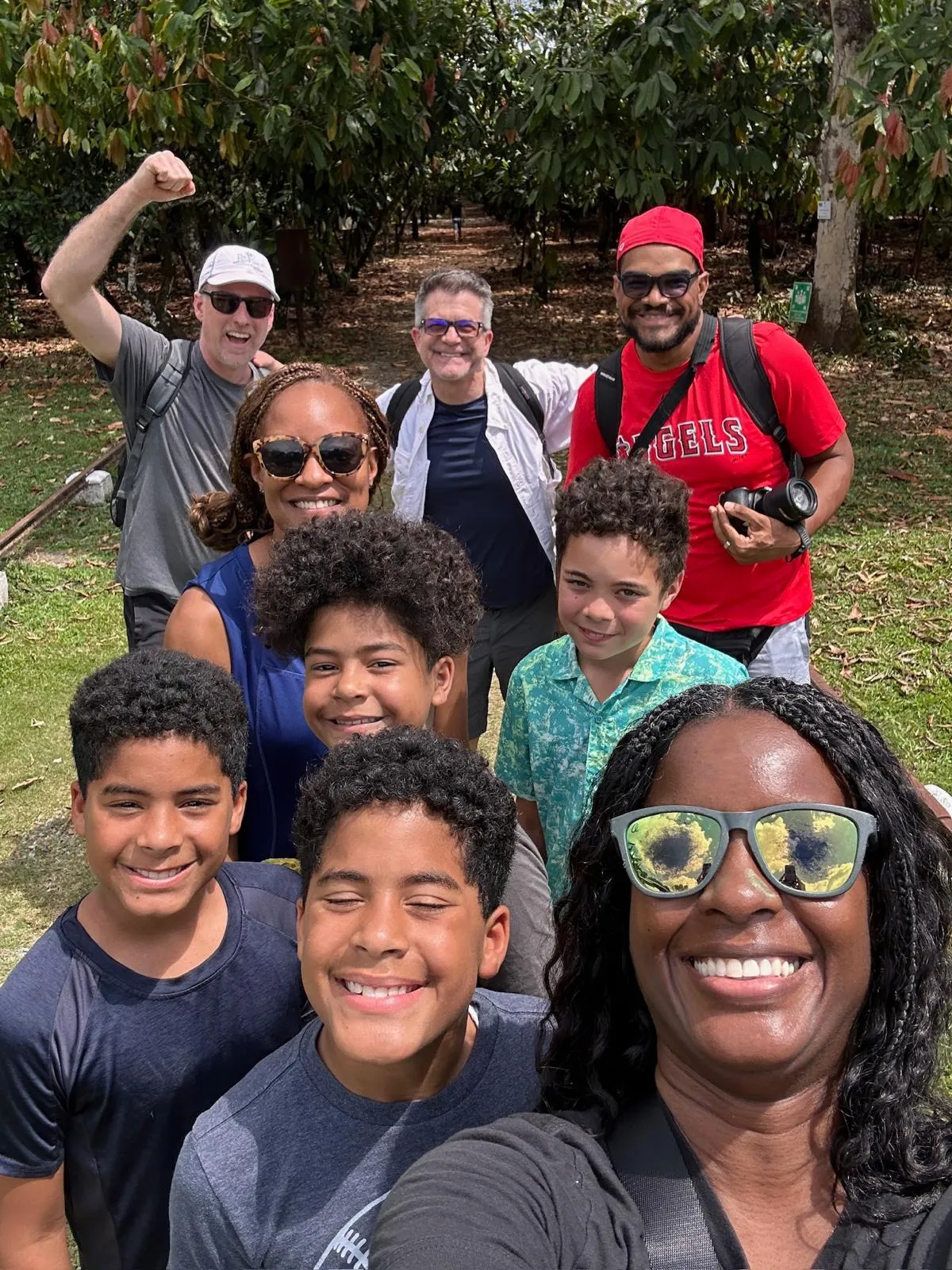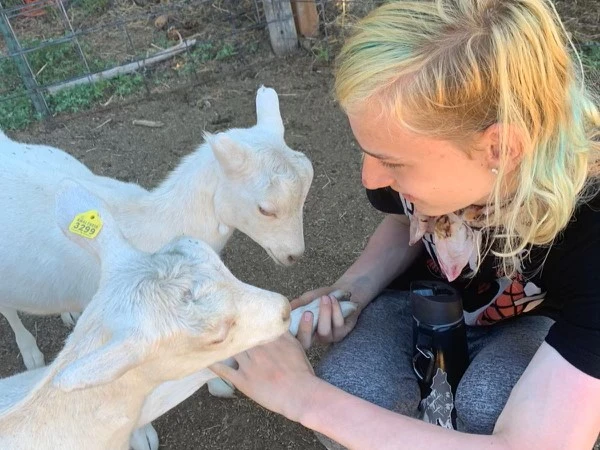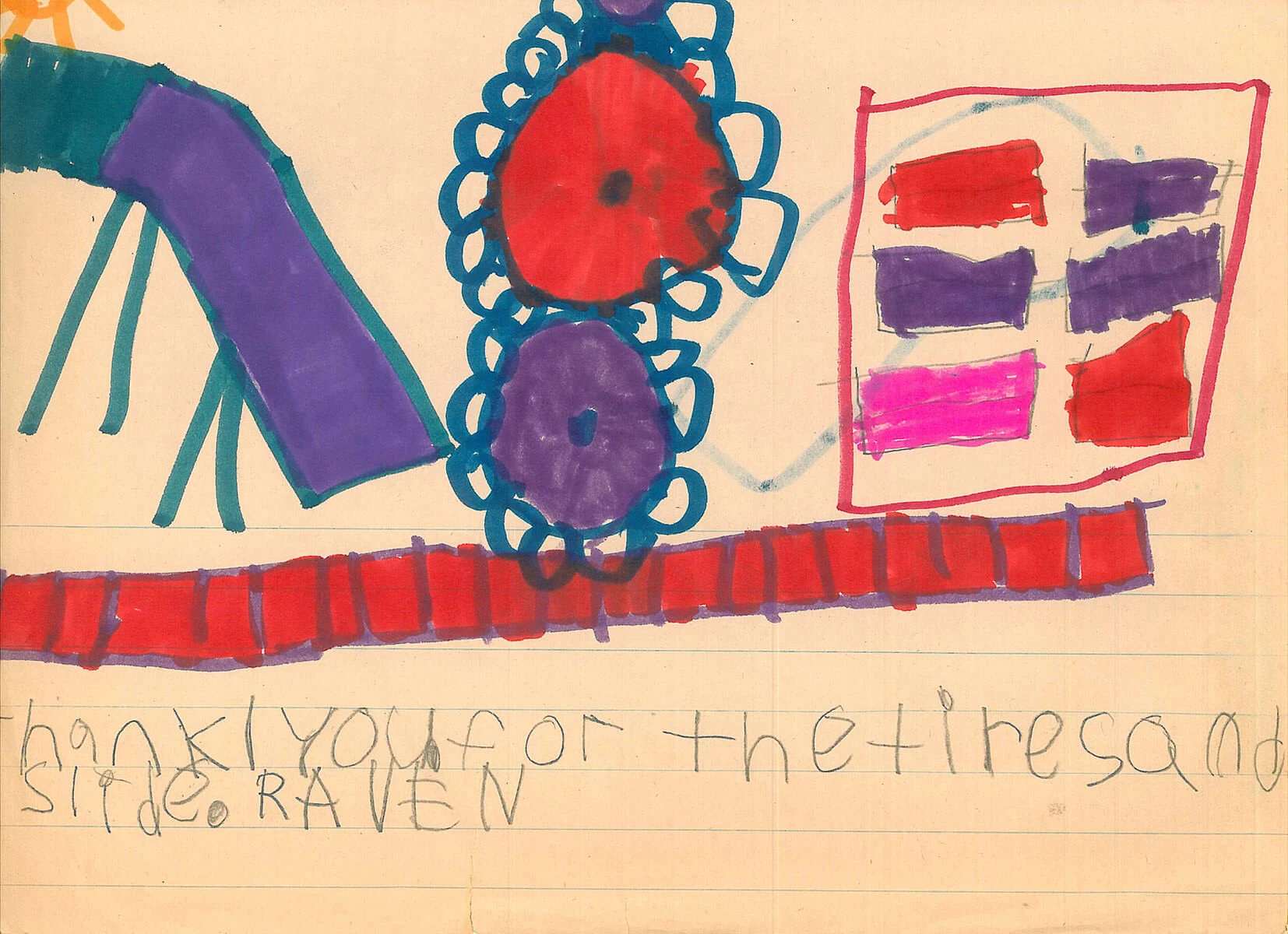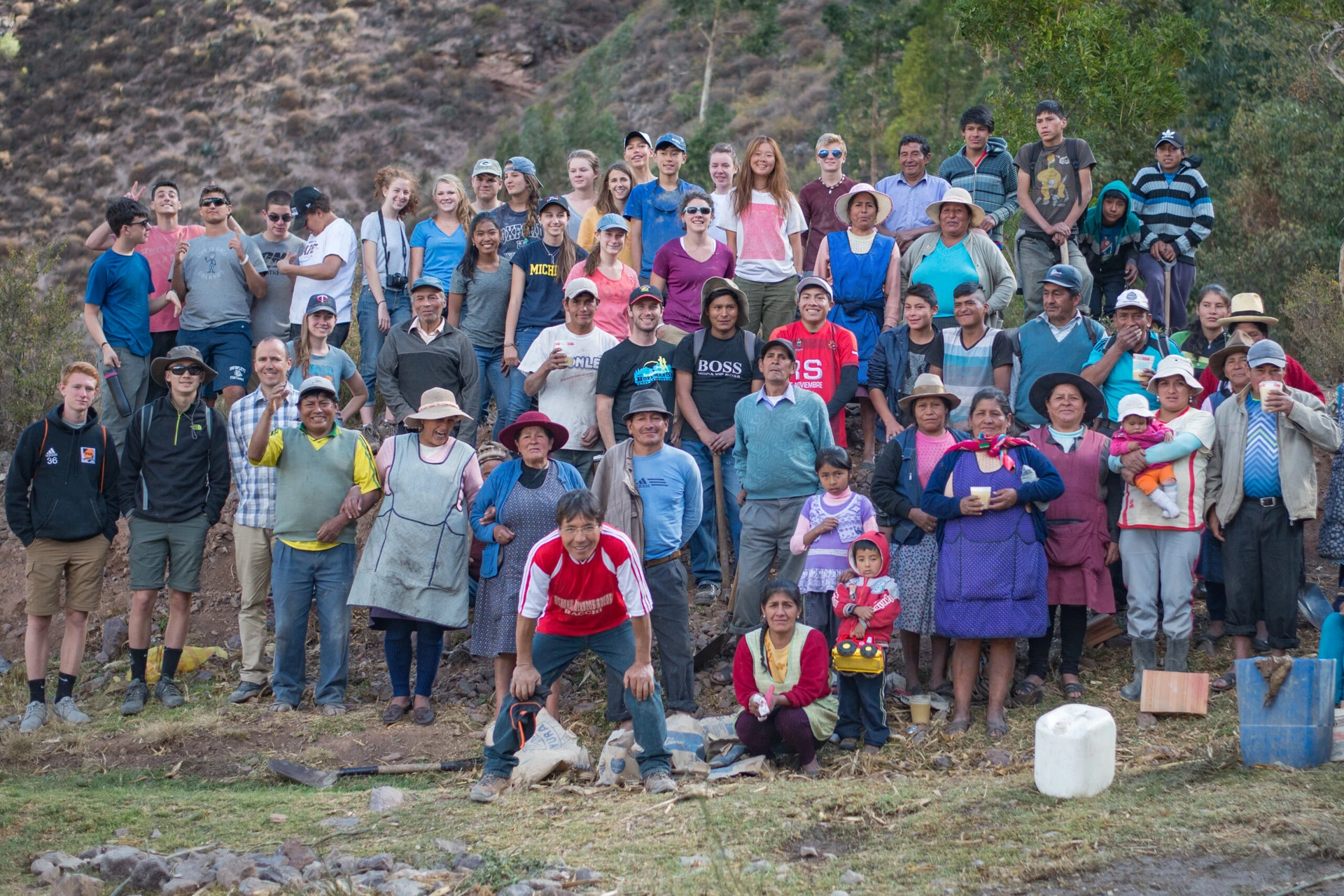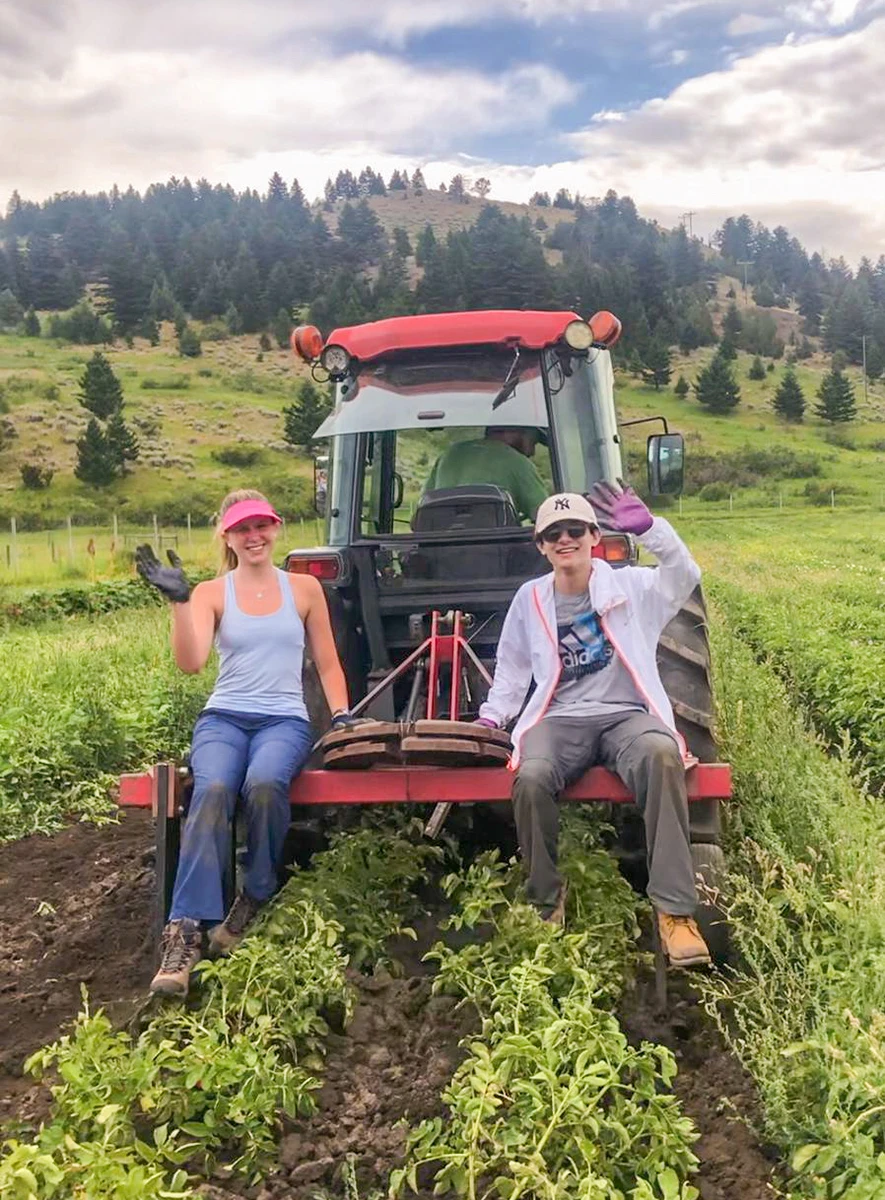
If you’ve participated in a VISIONS program before, then you know we try to minimize our ecological footprint as much as possible, and composting is an excellent way to do that. But what you may not have known is that you don’t have to live on a farm (or even have outdoor space at all) to compost. If well-managed, composting is a clean, odorless process that will not attract pests or rodents and safe, mess-free composting is possible just about anywhere. It’s a stellar way to both minimize the waste you’re sending to landfills and help prevent the release of methane, a potent greenhouse gas.
Whether you’re a VISIONS veteran with experience composting during our programs or a newcomer to our site, composting is a valuable way to begin making your lifestyle more sustainable. So let’s start with the basics.
What is compost?
The term “compost” refers to organic matter that breaks down or decomposes over time, turning into nutrient-rich soil that helps plants grow. In short, compost can come from all living things. Banana peels, houseplants, eggshells, hair, coffee grounds. We can use all this organic matter as compost.
A compost pile typically consists of two different types of organic matter, green and brown. Green compost material is waste like food scraps and grass, while brown compost material consists of dry waste like dead leaves, cardboard, cotton, wool and wood chips. Green and brown waste provide sources of nitrogen and carbon for the compost bin, respectively. These elements, along with water and air, create a perfect environment for bacteria and other decomposers, like worms and insects, to feed on the compost and break it down.
Why is composting important?
It’s crucial to understand that composting isn’t just something we’ve decided to do as humans, it’s an intrinsic part of the cycle of life. When plants and animals die in the wild, their organic matter decomposes naturally, feeding small organisms and enriching the soil around them, making it possible for new life to grow.
As a result, composting at home creates nutrient-dense soil that can serve as fertilizer to help your plants grow. All the sustainability perks aside, composting is like making your own free fertilizer at home!
Composting also offers myriad environmental benefits. Organic matter like food scraps and yard waste makes up more than 30% of the waste thrown into landfills each year according to the Environmental Protection Agency (EPA). This number obviously takes industrial waste into account, but for households, in particular, the percentage is often much higher. Food waste and other biodegradable materials often account for up to 50% of the trash we throw out! By composting, we’re helping to keep that trash out of landfills. This is key, because when we mishmash our waste in landfills, mixing organic material with inorganic material (like plastic, metal or glass) it becomes almost impossible for our organic waste to break down.
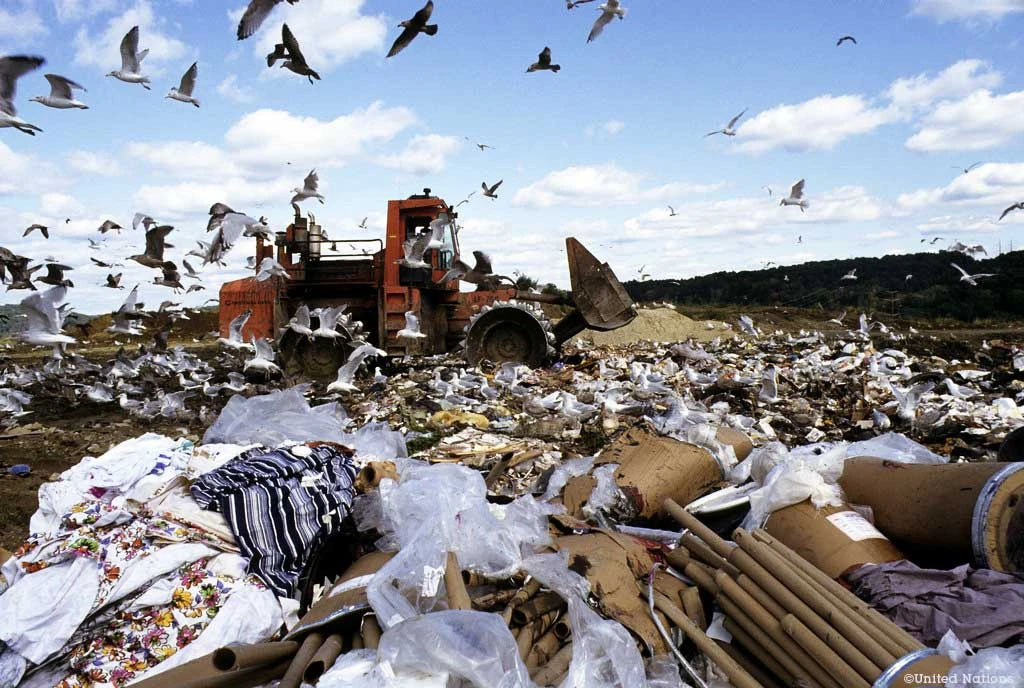
The organic matter is often trapped under layers and layers of other waste and doesn’t get the air or water it needs to properly decompose. Instead, it releases methane, a harmful greenhouse gas and major contributor to climate change. It can also lead to contamination of nearby rivers, lakes, and groundwater in the form of “leachate,” a toxic liquid formed via the mixing of the water released from organic waste and the chemicals contained in inorganic landfill waste like plastic.
How do I start composting?
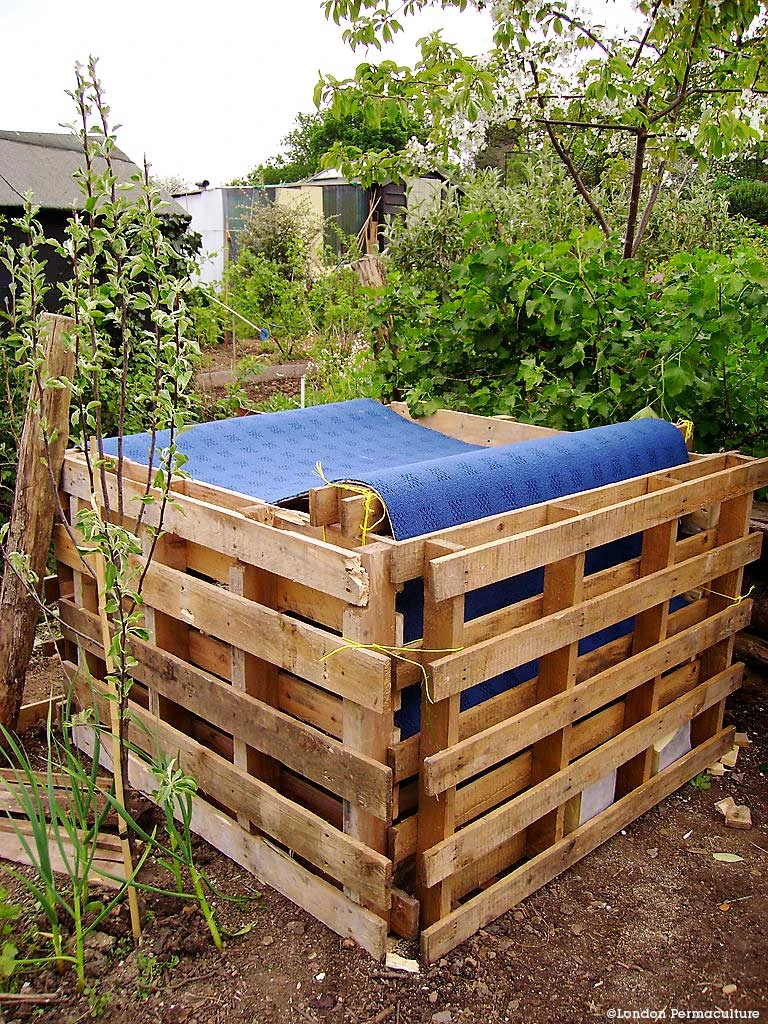
Create a Compost Bin or Space
In order to start composting, you’ll first need to find a space to compost. Often when people think of composting, they think of 6’ x 6’ wood-slatted, sandbox-esque areas in a backyard. While that’s one way to compost, you actually don’t need that much space. You can compost indoors! Even if you live in a small apartment, it’s easy to set up a small compost bin somewhere in your kitchen. There’s no hard and fast rule for the sort of container you need. You can find dedicated compost bins on Amazon with advanced features like activated charcoal filters to control odor, or you can simply use a plastic storage bin or 5-gallon bucket from your garage!
Size isn’t critical, you can easily compost with bins that are as small as a gallon. Whatever you decide to use, make sure you drill aeration holes in the lid (if it doesn’t already come with them) so that your compost gets the air it needs.
Optional: You can use worms to speed up your composting, a process called “vermicomposting.” To vermicompost, the steps are nearly identical, but you’ll need to keep the area extra moist so that your worms can survive, and provide them with a bedding material like newspaper or cardboard to get them started.
Gather Your Waste
It’s important to make sure you’re composting the right type of waste. You’ll ideally want to use an equal amount of green and brown organic waste so that your compost gets enough nitrogen and carbon to decompose properly.
Green Waste
- Fruit and vegetables
- Eggshells
- Coffee grounds
- Grass, green leaves, flowers, and other fresh garden waste
Brown Waste
- Shredded plain paper and cardboard
- Hay or straw
- Nutshells
- Dead or dry leaves and grass
- Cotton and wool
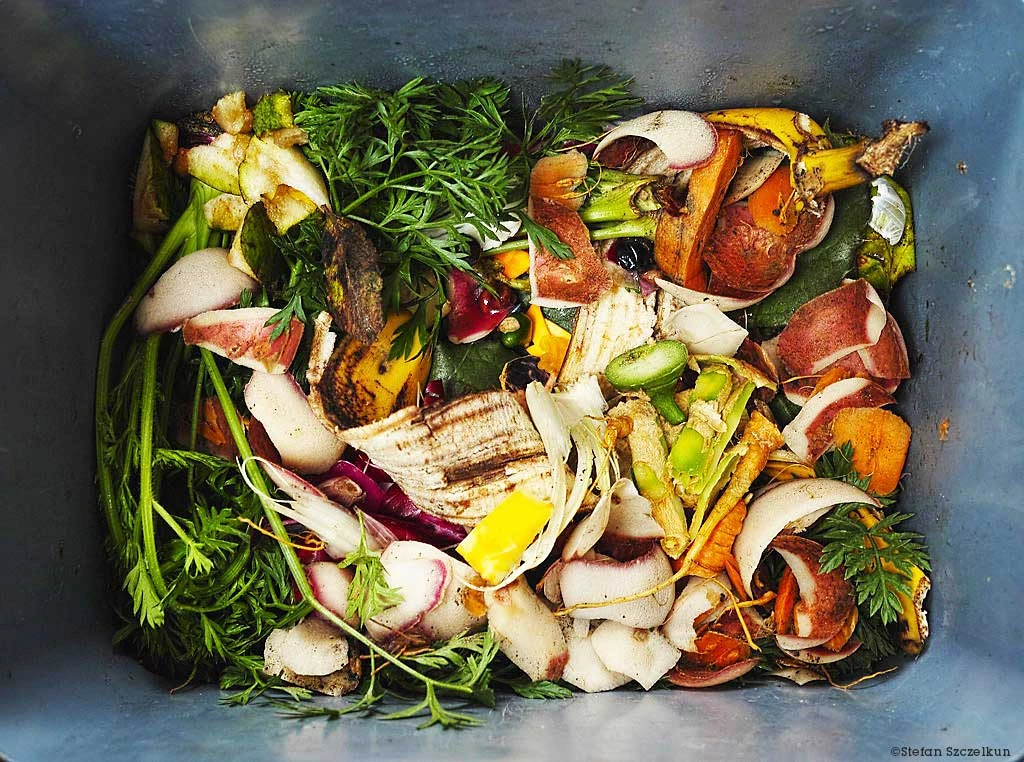
While almost all organic material will decompose in a compost pile, there are some things you should not compost, either for safety reasons (because they could contain harmful pathogens or chemicals) or because they contribute to odor and attract pests. These include:
- Meat
- Dairy products
- Pet waste (feces, litter, etc.)
- Fat, lard, grease or oils
- Plants or grass treated with chemical pesticides
Once you have all your material, place it into your compost bin, making sure to break the material down into pieces that are as small as possible. Moisten any dry waste as it is added, and be sure there is adequate airflow. Covering your compost with a tarp (if outside) can help keep in moisture over time.
Watch and Wait…
Now comes the easy part. You simply have to wait for your waste to decompose! Be sure to keep everything moist, and mix or turn the compost material over occasionally to help it break down. Mixing isn’t essential, but it will help your waste decompose much faster. The compost can take anywhere from a couple of weeks to several months to be ready, so just keep adding waste, watering your compost every now and then, and waiting.
Use Your Compost!
You’ll know your compost material is finished when it begins to look like dark, crumbly soil and has a rich, earthy aroma. If you’re planning on using your compost as fertilizer, take out this portion (leaving any undecomposed waste) and put it into flowerbeds, around trees and shrubs or anywhere else in your yard that could use extra nutrients. Composting is a constant process, so once you get in the groove and begin composting regularly, you’ll have a variety of compost in various stages of decomposition in your composting space.
You’ve just made your own free fertilizer, saved a slew of organic waste from landfills and prevented the release of a greenhouse gas (methane). Congrats!
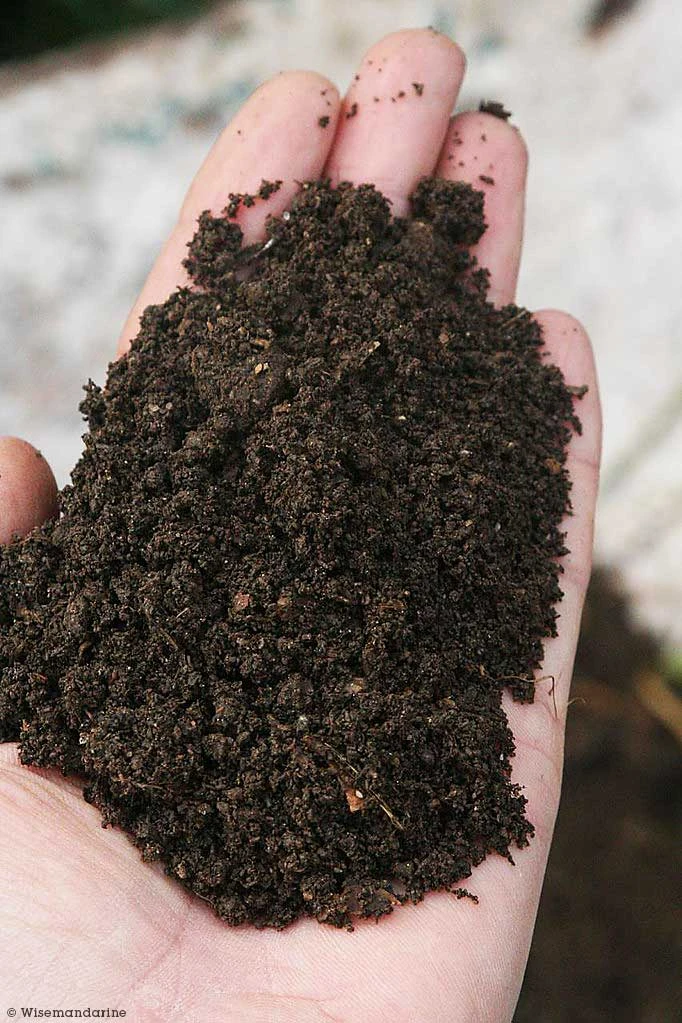
Helpful Composting Tips
- Have shredded newspaper or dry leaves nearby. Remember, you want to shoot for a 1:1 green to brown waste ratio in your compost. If you find yourself putting lots of food (green) waste into your compost, but don’t have enough brown waste to put in alongside it, keeping a little stash of paper, cardboard or leaves can help. Add in a couple of handfuls every time you put in your food scraps and other green waste so that your compost can get the carbon it needs.
- Keep your waste small. Smaller pieces of waste break down faster. Chopping up food scraps and other waste into smaller portions before putting them into your compost will dramatically reduce the time it takes your waste to decompose. Avoid putting in large items like tree branches, which will take ages to break down.
- Mix, Mix, Mix. Regular mixing of your compost is another way to ensure that your waste decomposes quickly. This helps ensure that the moisture is evenly distributed throughout the bin. If you’re composting in a small indoor bin, simply use a hand trowel and stir your bin for 10 seconds a couple of times each day.



